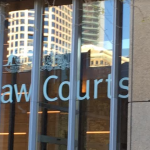Police Can Now Issue On-the-Spot Fines for Drug Possession

Since 25th January 2019, NSW Police Officers have been empowered to issue on-the-spot fines for certain drug possession offences.
Those who are issued with a fine will avoid a criminal conviction if they decide to pay, rather than contest it in court.
The NSW Government claims the move is designed to make festivals safer and help clear court backlogs, but concerns have been raised that it may be more about revenue raising and represents just another step towards a police state – where police officers are the judges, jurors and executioners when it comes to the criminal justice system.
Which drug offences can attract on-the-spot fines?
Under Schedule 4 of the Criminal Procedure Regulation 2017 (NSW), an on-the-spot fine of $400 can be issued for:
- Possessing not more than the ‘small quantity’, or 1 gram, of MDMA (‘ecstasy’) in capsule form,
- Possessing not more than the ‘traffickable quantity’, or 0.75 grams, of MDMA in any other form (eg tablet form), or
- Possessing not more than the small quantity of any other prohibited drug.
Schedule 1 of the Drug Misuse and Trafficking Act 1985 (NSW) lists the quantities applicable to prohibited drugs.
The small quantities for some of the most common illicit drugs are:
- Amphetamines – 1 gram
- Cocaine – 1 gram
- Heroin – 1 gram
- Ketamine – 2.5 gram
- Buprenorphine – 4 grams
- Mescaline – 3 grams
- Steroids – 50 grams
- Cannabis oil – 2 grams
- Cannabis resin – 5 grams
The Schedule does not apply to the possession of cannabis leaf.
Why not cannabis?
On-the-spot fines do not apply to cannabis leaf because the ‘cannabis cautioning scheme’ already gives police the discretion to issue a caution to adults who are found in possession of up to 15 grams of cannabis, and:
- Admit the offence,
- Do not have a prior conviction for a drug, sexual or violence offence, and
- Have not previously been given more than one cannabis caution.
A cannabis caution does not come with a fine.
Will I always receive a fine if I qualify?
No. Penalty notice offences are discretionary under section 333 of the Criminal Procedure Act 1986 (NSW) – which means it is up to police to decide whether you are issued a fine.
The same applies to the cannabis cautioning scheme.
The alternative is to issue you with a ‘court attendance notice’ – which means you will need to attend court and decide whether to plead not guilty or guilty to the offence.
What could influence whether police exercise their discretion?
A whole range of matters can influence whether police decide to issue a fine rather than a court attendance notice, including:
- Your demeanour and attitude,
- Whether you take responsibility and express remorse,
- Whether you have any previous convictions, and even
- How the officer is feeling on the day.
Again, the decision is entirely discretionary.
Can I fight the fine?
Yes, you can choose to take the matter to court.
If you feel were unfairly issued with the fine, for example, if you were subjected to an illegal search, or the substance on you was not a prohibited drug, or you were not in possession of the substance, you can take the case to court and plead not guilty.
In the lead-up to the court hearing, your lawyer can write a letter to police called ‘representations‘ formally requesting the withdrawal of the charge.
If the charge is withdrawn, or if it goes to a defended hearing and you are found not guilty, there will be no criminal conviction and no fine. In that case, your lawyer may seek to obtain an order for police to pay your legal costs.
However, you should be aware that the maximum penalty if you are found guilty is two years’ imprisonment and/or a $2,200 fine. You will also, in that event, receive a conviction on your record unless the magistrate is persuaded to grant a section 10(1)(a) dismissal or a non-conviction conditional release order.
You should also consider the legal costs involved in taking your case to court.






